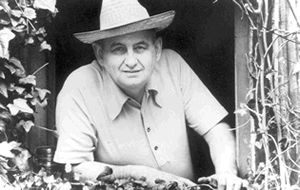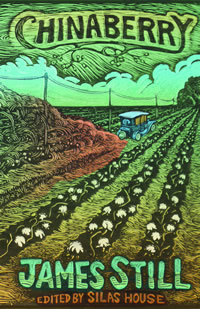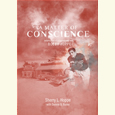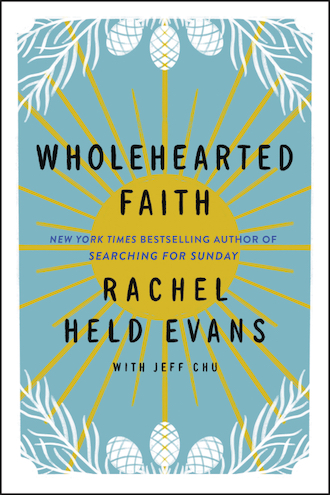Another Novel, At Long Last
Thanks to Silas House, James Still’s last book has finally come to print
James Still died in 2001, a few months short of his ninety-fifth birthday. By the time he was laid to rest in Knott County, Kentucky, on the grounds of the Hindman Settlement School, he had long been known as “the Dean of Appalachian literature.” His 1940 novel, River of Earth, stands alongside John Steinbeck’s The Grapes of Wrath as America’s best novelistic depiction of the Great Depression: the Joads of Steinbeck’s book are pulled from their dust-bowl lives in Oklahoma toward the promise of the lush lands of California, while Still’s Eastern Kentucky Baldridges move from subsistence farming to a ceaseless migration from coal camp to coal camp. River of Earth has endured partly because Still avoids polemic: in River of Earth, the principal tension lies less between Big Coal and coalminers than between Brack Baldridge, who believes “[i]t was never meant for a body to be full content on the face of this earth,” and his wife, Alpha, who longs for the stability of their old farming life. Still is that rare writer who combines an unflinching examination of the human condition with a remarkable lyricism.
Born in 1906 in Lafayette, Alabama, in the southernmost foothills of Appalachia, Still was the sixth of ten children. Later, as a quarryman and library janitor, he worked his way through Lincoln Memorial University in Harrogate, Tennessee. In 1929, at the high point of the Agrarian Movement, he enrolled at Vanderbilt to earn a master’s degree under the tutelage of John Crowe Ransom and Walter Clyde Curry, among others. His year in Nashville wasn’t easy, according to critic H.R. Stoneback: “My two meals a day consisted of a ten-cent bowl of cereal in the morning and a thirty five-cent supper at a boarding house: slim rations for a boy tackling Middle English.” After earning a final degree from the Illinois Library School in 1931, Still settled in Knott County, Kentucky, to become the librarian at the Hindman Settlement School, a position which paid only room and board throughout the Depression, and moved into the log cabin he would live in for the next sixty-five years. There he began writing River of Earth.
 For the last fifteen years of his life, Still carried with him a worn briefcase holding the rough manuscript of a novel in progress; the manuscript was with him when he died. In 2004, his literary heirs contacted the novelist Silas House, then writer-in-residence at Lincoln Memorial University, who had grown up in the region and had met the elder Still at writers’ conferences, and asked him to edit the manuscript. It is impossible to imagine a better choice for this job than House, who is a novelist, playwright, poet, essayist, editor, YA author, and environmental activist. Like Still, House has the lyrical gift and he was already versed, as a longtime admirer, in Still’s style: lyrical, but also precise and economical—Still’s sentences are generally short, eschewing extraneous information, and they rarely employ three-syllable words when one or two syllables will do.
For the last fifteen years of his life, Still carried with him a worn briefcase holding the rough manuscript of a novel in progress; the manuscript was with him when he died. In 2004, his literary heirs contacted the novelist Silas House, then writer-in-residence at Lincoln Memorial University, who had grown up in the region and had met the elder Still at writers’ conferences, and asked him to edit the manuscript. It is impossible to imagine a better choice for this job than House, who is a novelist, playwright, poet, essayist, editor, YA author, and environmental activist. Like Still, House has the lyrical gift and he was already versed, as a longtime admirer, in Still’s style: lyrical, but also precise and economical—Still’s sentences are generally short, eschewing extraneous information, and they rarely employ three-syllable words when one or two syllables will do.
The result of House’s editing is Chinaberry, a coming-of-age story about an (almost) unnamed thirteen-year-old who travels from his home in Alabama with his father’s friend Ernest and a pair of twenty-something comedic characters named Rance and Cadillac, also known as The Knuckleheads, to find summer work in Texas. Though it is never explicitly mentioned, the time appears to be the 1920s. The boy is along for this journey at his father’s request: “Papa had once lived in Texas, and it had never gotten out of his blood. He wanted me to know what it was like.” The narrator is startled by the geographical difference between Alabama and West Texas:
Back home, in August our Alabama yard was half-filled with petunias, brown-eyed Susans, and gaillardias. I was used to a place that possessed a cape jasmine by the step, which needed only a bucket of cold water thrown on it to sweeten the air. But here there were hitching posts, horse apples scattered about, two great live oaks shading a corner of the house, and a clump of chinaberry trees—which gave the farm its name, Chinaberry—sheltering a wooden contraption of a swing, and a single pomegranate tree hanging with fruit, surrounded by a protecting fence.
 That sense of otherness unfolds throughout the novel. The most dramatic difference is in the narrator’s treatment by Anson and Lurie Winters, the couple who take him in for the summer. At home, he had been “denied the nurturing most Southern children received,” but at Chinaberry the boy is smothered with attention. The overwhelming nature of the attention, in fact, is what lends the novel its psychological strangeness—a strangeness that doesn’t quite cross the line into creepy but comes awfully close. Although Still is writing about an earlier, perhaps less cynical time, it is hard for contemporary readers not to flinch a bit at the Ansons’ treatment of the narrator: they dress him up as if he were a doll; they bring him into their bedroom to sleep. Anson’s behavior is particularly disturbing: several times a day he bites the boy on the neck kisses him on the cheek, forehead, nose. One night he wonders if it isn’t time for payback: “That evening we had donned our sleeping garments. I was in my nightshirt, Lurie was in her lacy nightgown down to her ankles, and Anson in his pajamas. His pajama jacket was unbuttoned, so I reached over and touched my lips to his chest three times. He said nothing for a moment, then said, “There are other places.”
That sense of otherness unfolds throughout the novel. The most dramatic difference is in the narrator’s treatment by Anson and Lurie Winters, the couple who take him in for the summer. At home, he had been “denied the nurturing most Southern children received,” but at Chinaberry the boy is smothered with attention. The overwhelming nature of the attention, in fact, is what lends the novel its psychological strangeness—a strangeness that doesn’t quite cross the line into creepy but comes awfully close. Although Still is writing about an earlier, perhaps less cynical time, it is hard for contemporary readers not to flinch a bit at the Ansons’ treatment of the narrator: they dress him up as if he were a doll; they bring him into their bedroom to sleep. Anson’s behavior is particularly disturbing: several times a day he bites the boy on the neck kisses him on the cheek, forehead, nose. One night he wonders if it isn’t time for payback: “That evening we had donned our sleeping garments. I was in my nightshirt, Lurie was in her lacy nightgown down to her ankles, and Anson in his pajamas. His pajama jacket was unbuttoned, so I reached over and touched my lips to his chest three times. He said nothing for a moment, then said, “There are other places.”
It is not clear that what’s going on here is purposeful on Still’s part, or whether he died before he had finished working out the psychologies of his principal characters. It will be up to readers to decide what they think is going on with the Winters, particularly with Anson, whose tragic backstory, told in a mesmerizing, almost magical realist vein, is worthy of a novel in itself. House, to his credit, doesn’t try to resolve the uncertainty.
Despite what must have been enormous challenges for House —linking scenes together into a coherent, linear narrative; providing transitions; eliminating repetition—there are few places where the seams show. Once, for example, the narrator explains that he always took care of his bathroom needs during the day and so never needed to use the indoor bathroom or chamber pot in the middle of the night; nine pages later, though, we’re told that whenever he woke to use the bathroom, he would, upon returning, touch Anson’s pillow.
But such small missteps do little to detract from this beautiful, strange novel. If not a fully realized masterpiece like River of Earth, Chinaberry does justice to Still’s literary legacy—and to House’s. A decade after his death, one of the most important Kentucky writers of the twentieth century has capped, well into the twenty-first, a remarkable career with a moving, gorgeously written work of art.


